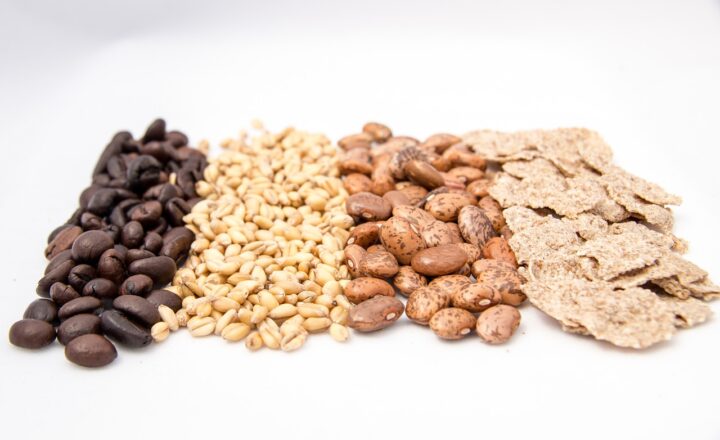How the Science of Nutrition is Changing the Way We Think About Food
November 16, 2024

In recent years, the science of nutrition has gained unprecedented attention as people increasingly regard food as a critical component of their overall well-being. No longer is food merely a means of survival; it is now understood to be intricately linked with our health, mental state, and even longevity. In this comprehensive article, we will explore how advancements in nutritional science are reshaping our understanding of food and influencing our everyday choices.
1. The Evolution of Nutritional Science
The journey of nutritional science can be traced back to the discovery of vitamins in the early 20th century, which revealed that certain food components are essential for human health. Over the decades, substantial research has identified various nutrients and their respective roles in bodily functions. Here’s a brief overview of this evolution:
- Vitamins and Minerals: Early research established the importance of micronutrients such as iron, calcium, and vitamins for preventing deficiency diseases.
- Macronutrients: The emphasis shifted to macronutrients—proteins, fats, and carbohydrates—and their respective roles in energy balance and metabolism.
- Functional Foods: The concept emerged that certain foods offer health benefits beyond basic nutrition, leading to the rise of functional food products loaded with beneficial additives like probiotics and antioxidants.
- Personalized Nutrition: Recent innovations include individualized dietary recommendations based on genetic make-up, gut microbiota, and personal health data, which are leading to new frameworks for understanding the interaction between food and health.
This evolution exemplifies how our understanding of nutrition has progressed from simply consuming a balanced diet to recognizing the multifaceted roles that food plays in our lives.
2. The Impact of Nutritional Science on Food Choices
As nutritional science advances, it is increasingly influencing how we perceive and consume foods. Here are several notable impacts:
- Informed Choices: Scientific studies inform consumers about the benefits of whole foods and highlight risks associated with processed foods. This information empowers individuals to make healthier decisions. Brands are reacting by labeling products transparently, allowing consumers to understand what they are eating better.
- Holistic Well-being: The narrative surrounding food is transitioning from merely caloric intake to encompassing overall wellness. Modern nutritional guides promote the idea of food as medicine—suggesting that what we eat can impact everything from inflammation levels to mental health, resulting in a greater emphasis on nutrient-dense foods that promote health rather than hinder it.
- Sustainable Eating; Scientific findings emphasizing environmental sustainability have spurred movements advocating for plant-based diets. Research indicates that reducing meat consumption can lower one’s carbon footprint, thereby changing food purchasing decisions among eco-conscious consumers.
- Mindful Eating: The integration of nutritional science into psychology has birthed the concept of mindful eating. This approach encourages individuals to focus on their body’s hunger cues and eat slowly, leading to a healthier relationship with food and enhanced eating experiences.
These shifts underscore the importance of making informed decisions based on scientific understanding, allowing individuals to reclaim ownership of their food choices.
3. Nutritional Science and Public Health
Nutritional science does not just impact individual choices; it also plays a critical role in shaping public health policies and recommendations. Here’s how:
- Dietary Guidelines: Governments and health organizations rely on nutritional research to formulate dietary guidelines that provide recommendations on recommended daily intakes of various nutrients, guiding citizens towards healthier eating patterns.
- Health Campaigns: Public health campaigns are often based on the latest nutritional findings, encouraging healthy eating habits and educating populations about the adverse effects of processed foods and sugars, particularly on youth and vulnerable groups.
- Healthcare Integration: Nutritional science is increasingly being integrated into medical practices; healthcare providers are beginning to recognize the impact of diet on chronic diseases such as obesity, diabetes, and cardiovascular illnesses, often recommending dietary changes alongside traditional medical interventions.
- Community Initiatives: Many communities have initiated local farms, farmers’ markets, and nutrition workshops to bolster food education and provide access to healthier, fresh food options, particularly in food deserts.
These public health measures underscore the significance of nutritional science as a tool for health promotion and disease prevention.
4. The Search for Superfoods and Nutraceuticals
As we delve deeper into nutritional science, the concept of superfoods has gained popularity. These are whole foods considered nutritionally dense and beneficial for health. Some promising advancements include:
- Antioxidants: Foods high in antioxidants, such as berries, are acknowledged for combating oxidative stress, promoting overall health, and supporting longevity.
- Functional Ingredients: Ingredients like turmeric, ginger, and green tea extract have gained traction; they are linked to anti-inflammatory properties and improved cognitive function, transforming them into staples in health foods and supplements.
- Probiotics and Prebiotics: The understanding of gut health has paved the way for foods infused with probiotics and prebiotics, promoting better digestion and nutrient absorption, influencing the way foods are designed and marketed.
While the term “superfood” may sometimes be overused, the scientific backing behind certain foods is leading consumers to rethink their approach to nutrition.
5. The Future of Food: Innovations in Nutritional Science
Looking ahead, the intersection of technology and nutritional science holds vast potential for revolutionizing how we think about food. Innovations we might see include:
- Food Technology: Advances in food processing and preservation may enhance nutrient retention, reducing food waste and improving population nutrition globally. Innovations like lab-grown meats and plant-based alternatives aim to meet dietary needs while minimizing environmental impacts.
- Wearables and Apps: The integration of technology enables real-time monitoring of dietary habits and health metrics, leading to more personalized nutrition plans based on individual needs and preferences.
- Nutritional Genomics: A burgeoning field that studies the interaction between food and genes, offering insights into how individuals can optimize their dietary intake according to their genetic profiles and predispositions to certain diseases.
These innovations point towards a future where nutrition becomes increasingly personalized and scientifically informed, steering society towards a culture that values food as a foundation of health.
Conclusion
The science of nutrition is undeniably transforming the way we think about food, forging a deeper connection between what we eat and our health outcomes. As we continue to explore the intricacies of dietary science, we are empowered to make better choices that influence not only personal health but also public well-being on a larger scale. By embracing a mindset that values nutrition as a crucial pillar of life, we can nurture a healthier, more informed society, ultimately paving the way for a brighter future.
In the end, understanding the science behind nutrition can enable us to choose foods that not only taste good but also nourish our bodies and support our journey toward optimum health.








